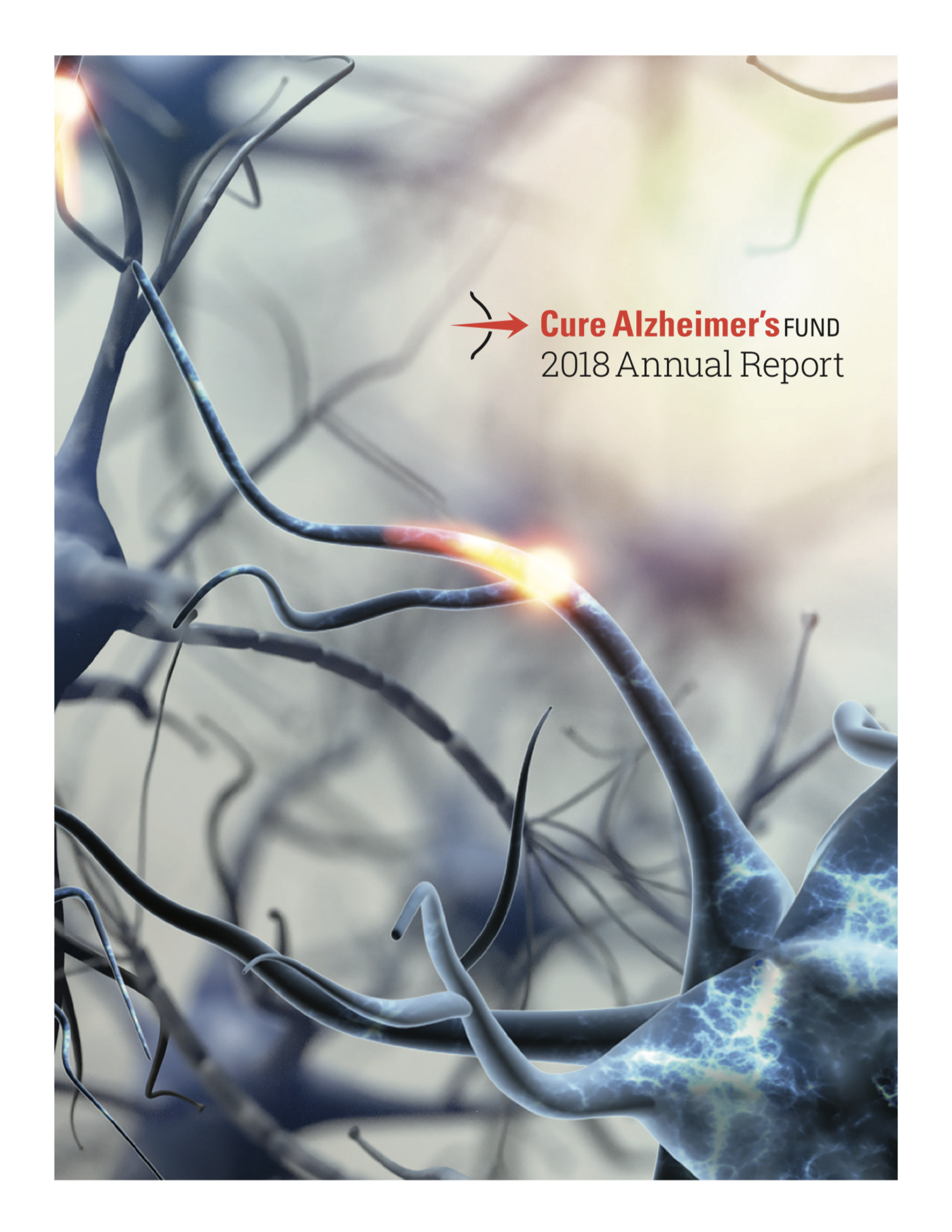Targeting Inflammation in the Brain May Be the Key to a Future Therapy
New research recently published has caught the attention of the science world and the media. The study, conducted by Drs. Ana Griciuc, Rudy Tanzi, and others with a grant from Cure Alzheimer’s Fund, demonstrates the important role of inflammation in the brain, the resulting destruction of brain neurons, and the potential target for a future therapy.
“We are increasingly realizing that to help Alzheimer’s patients, it is most critical to stop the massive brain nerve cell death that is caused by neuroinflammation,” says Tanzi.

Dr. Ana Griciuc and Dr. Rudy Tanzi
Some Brains Are Resilient to Alzheimer’s Disease: We Want to Know Why
Even with the hallmarks of the pathology of Alzheimer’s, some individuals never develop the disease. Dr. Teresa Gomez-Isla’s lab is on a mission to understand why some are able to tolerate severe amounts of amyloid plaques and neurofibrillary tau tangles, without experiencing dementia. From a grant provided by Cure Alzheimer’s Fund, Dr. Gomez-Isla and her colleagues uncovered new insights into what differentiates the brains of these resilient individuals.

Dr. Teresa Gomez-Isla
New Drug Targets Identified from Screening of 75,000 Small Molecules
Dr. Carmela Abraham of Boston University, through a grant from Cure Alzheimer’s Fund, screened 75,000 small molecules with the hope of discovering a molecule that would reduce the formation of amyloid beta plaques, one of the pathological hallmarks of Alzheimer’s disease. The findings recently published showed that Dr. Abraham and her colleagues identified two targets, one that decreases amyloid production. The twist in the research comes from the fact that the target also serves as an anti-cancer therapy. This paper provides more evidence for the interesting intersection between pathways that are implicated in both cancer and neurodegeneration.

Dr. Carmela Abraham
Men and Women Are Different: The Gut-Brain Connection
Dr. Sam Sisodia reported to an international group of scientists in Portugal, Lisbon, how Cure Alzheimer’s Fund supported research on the gut-brain microbiome connection when other funding agencies found it too outside-the-box, but also provided the motivation to enhance the study when Jacqueline Morby, founding Board member, asked about the differences between male and female mice. It turns out there are differences.

Dr. Sam Sisodia and Dr. Oleg Butovsky
Myth Busting: Why Coconut Oil Is Not a Cure For Alzheimer’s Disease
For years, on social media and in the general media, there have been reports claiming that Coconut Oil enhances memory and is a proven, effective therapy for Alzheimer’s disease. In short: There are no clinical or observational studies that have specifically assessed the effects of coconut oil on the incidence of Alzheimer’s disease.
2018 Cure Alzheimer’s Fund Annual Report Available Online






